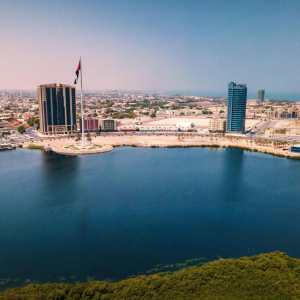A city that never sleeps, yet respects the clock
Dubai is a city of opportunity, ambition, and fast-paced development. With its gleaming skyscrapers and ever-growing business sectors, it attracts thousands of expats every year looking to carve out a better life. But with dreams of success often come questions about what that journey really looks like. One of the most common curiosities? What are the work hours of expats per week in Dubai?
At first glance, many assume Dubai’s work culture is relentless—demanding long hours, endless commitments, and little downtime. But is that the full story? The reality, like the city itself, is more layered. Let’s step into the world of Dubai’s expatriate workforce and uncover what their weekly grind really feels like.

The standard workweek: What the law says
For most private-sector expats working in Dubai, the typical workweek is officially capped at 48 hours. That usually means 8 hours a day, 6 days a week. Friday used to be the universal day off, but with the UAE’s transition to a Monday-to-Friday working week for the public sector and many private companies following suit, weekends are now often Saturday and Sunday—bringing it closer to Western work patterns.

Still, some industries—especially hospitality, construction, retail, and security—may still operate on the 6-day schedule. This means that while office workers may enjoy two days off, blue-collar workers often get just one.
But rules are just the baseline. What really happens depends on where you work, who you work for, and what your role demands.

The hidden hours behind the job titles
For many professionals working in multinational companies or fast-growing startups in Dubai, the 48-hour limit is more of a guideline than a hard rule. It’s not unusual for expats in high-pressure roles—especially in finance, tech, media, and sales—to clock in extra hours during evenings or weekends.
However, the culture is shifting. Work-from-home flexibility, remote tools, and wellness initiatives have helped some employees find better balance. Many employers are now offering shorter Fridays, optional hybrid work models, or even 4.5-day weeks.
And yet, for others, especially newcomers eager to prove themselves, long hours are often seen as a badge of honour. They hustle harder, stay longer, and push themselves—sometimes more than required—just to keep up in the competitive Dubai market.
Blue-collar workers: The unsung engine of the city
The story of expat work hours in Dubai cannot be complete without mentioning the city’s backbone—the blue-collar workforce. These are the construction workers, cleaners, delivery riders, and support staff who often start work before the sun rises and return home long after it sets.
For them, the 48-hour workweek is common, but many also work overtime. In many cases, these additional hours are not optional—they are a financial necessity. Extra shifts mean extra income, and for workers supporting families back home, every extra dirham counts.
Yet, in recent years, there has been growing awareness about the need to protect the rights and wellbeing of these workers. Authorities and companies alike are taking steps to ensure fairer hours, better accommodation, and improved living standards. It’s a slow process, but it’s a direction that holds hope.
Balancing ambition and lifestyle
One of the major appeals of working in Dubai is the lifestyle it offers—safe streets, sunny beaches, global cuisine, and a cosmopolitan social scene. But can you really enjoy all this if you’re glued to your laptop for 60 hours a week?
Many expats learn quickly that time management is key. Some industries encourage a healthier work-life balance, allowing employees to leave work on time and switch off after hours. Others are more demanding, but with that comes higher pay, faster promotions, and international exposure.

It really depends on personal priorities. Some expats come to Dubai looking to save and send money home, so longer hours are worth it. Others want to climb the career ladder quickly. And then there are those who seek a more balanced lifestyle—working hard, yes, but making space for yoga, weekend brunches, or school pickups.
The shift toward wellness and work-life balance
In recent years, Dubai has witnessed a growing focus on mental health, wellness, and employee happiness. Government campaigns, workplace wellness weeks, and HR-led initiatives are encouraging employees to prioritise self-care.
More companies are investing in mental health resources, counselling services, and flexible hours. HR departments now speak more openly about burnout, and it’s becoming more acceptable to set boundaries. These changes are especially noticeable in corporate sectors, where the conversation around productivity is shifting from “work more” to “work smarter.”
Different roles, different rhythms
It’s important to remember that Dubai’s expat community is incredibly diverse. From high-flying executives in the Marina to retail workers in Deira, from digital nomads in co-working spaces to nurses and teachers in the suburbs—everyone has a different rhythm.
An expat teacher may work 40-45 hours a week, with evenings and weekends largely free. A tech consultant may work longer hours but have the option to work remotely. A restaurant manager may find themselves covering late shifts and weekends, but also benefit from a close-knit work culture and service tips.
Each profession paints its own picture. And each expat shapes their own story within it.
The grind, the goals, and the grit
Working in Dubai is not without its challenges. The competition is fierce, the standards are high, and the cost of living keeps rising. But for many expats, the rewards make the journey worthwhile.
They work hard—not just for promotions, but for purpose. They chase dreams, build futures, and create lives far away from home. And in doing so, they navigate work hours that test their limits and reveal their strength.
Whether you’re working 40 hours or 60, whether you’re in a suit or in a uniform—every expat in Dubai carries a story of grit, growth, and transformation. They arrive with ambitions, adapt to the rhythm of the city, and find their own way to thrive.

So, how many hours do expats work per week in Dubai?
There’s no one-size-fits-all answer. Legally, most work 48 hours. In reality, it could be more—or sometimes, less—depending on the job, the company, and the personal goals of the individual.
But beyond the numbers, what really matters is this: expats in Dubai work with a purpose. Whether it’s providing for a family, chasing a dream, or building a better tomorrow, they put in the hours with heart and hope.
And in the city where dreams are built on sweat and skyline, every hour worked is a step toward something greater.
Do follow UAE Stories on Instagram
Read More: Easiest Free Zones to Register a Business in 2025













